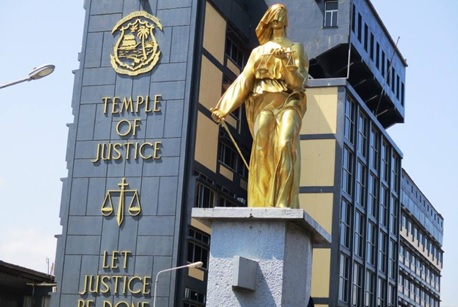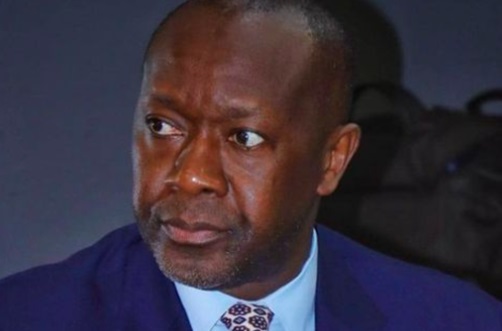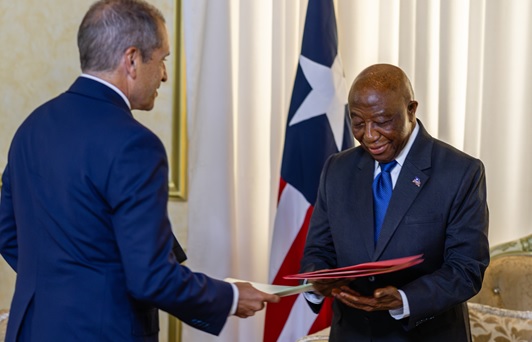MONROVIA, LIBERIA – In a significant legal development, Supreme Court Justice Yusif Kabba has issued a temporary prohibition on the suspension of J. Aloysius Tarlue, the Executive Governor of the Central Bank of Liberia (CBL). Tarlue’s suspension by President Joseph Boakai had raised constitutional concerns, with Tarlue arguing that the President’s actions were unconstitutional and violated the Central Bank Act.
Earlier this week, Justice Kabba convened a conference between the government and Tarlue’s legal team, ultimately siding with Tarlue by granting a temporary prohibition. The matter has now been forwarded to the full bench of the Supreme Court for further consideration.
The suspension stemmed from findings in a compliance audit report by the General Auditing Commission (GAC), which revealed issues such as excessive expenditures, deficit financing, improper transactions, unauthorized payroll financing, potential money laundering, and a lack of competitive bidding in procurement processes. According to Minister of Information Jerelinmek Piah, Tarlue’s suspension was intended to allow him to address these concerns.
President Boakai cited the Auditor General’s Report from the audit of the Central Bank for the fiscal years 2018-2023 as the basis for Tarlue’s suspension. However, Tarlue’s legal team, represented by Gongloe & Associates, Inc., contended that the suspension was unconstitutional. They argued that Tarlue’s appointment, confirmed by the Liberian Senate in 2021, was for a fixed five-year term and could only be terminated through impeachment by the National Legislature, not by a presidential decree.
Tarlue’s petition, filed on August 2, 2024, asserts that the suspension violates the Central Bank Act and the 1986 Constitution of Liberia. His legal team argued that the suspension, carried out without a formal hearing, breaches due process and threatens the rule of law. The petition highlights that Tarlue’s appointment letter explicitly states that he can only be removed through impeachment by the Legislature.
The legal argument centers on Section 13.1 of the Amended and Restated Act Establishing the Central Bank of Liberia (1999), which guarantees a five-year term for the Executive Governor, once confirmed by the Senate. Tarlue’s legal team also cited Article 20(a) of the 1986 Constitution, which ensures that no person shall be deprived of rights without due process of law.
Tarlue warned that his suspension could set a dangerous precedent, potentially allowing the Executive Branch to arbitrarily remove other officials with tenure protection, including members of the Supreme Court. His petition emphasized the importance of maintaining checks and balances as intended by the framers of the Constitution.
Cllr. Tiawan S. Gongloe and his team, including Counsellors Daoda M.T. Keita, Migbeh S. Gbartor-Dor, and G. Kandakai, are representing Tarlue in seeking immediate reinstatement with all rights and emoluments. They urged the Supreme Court to prevent the Executive Branch from taking similar actions in the future, arguing that Tarlue’s suspension was illegal and contrary to established legal norms.
The Supreme Court’s full bench is expected to deliberate on the case further, with its decision likely to have significant implications for the balance of power between Liberia’s Executive and Legislative branches.







